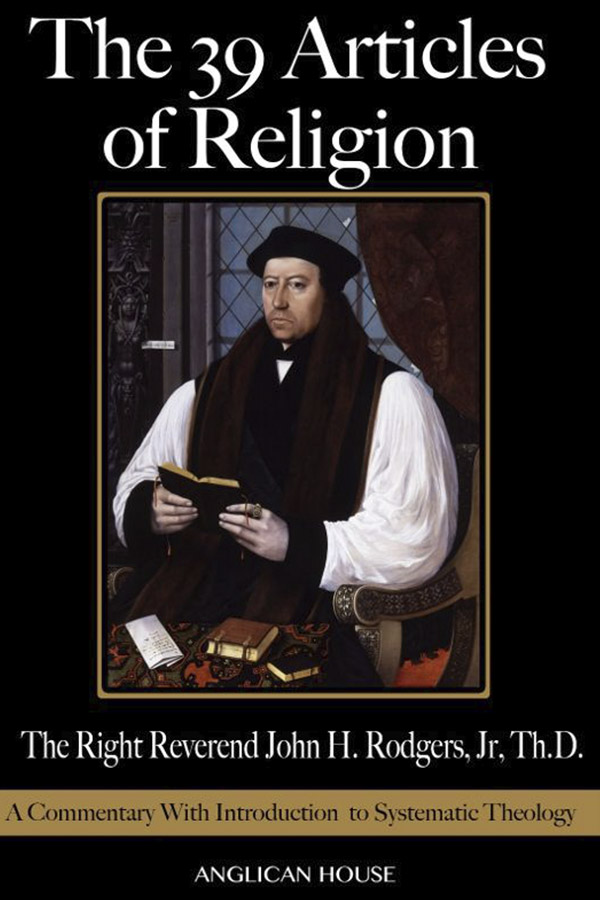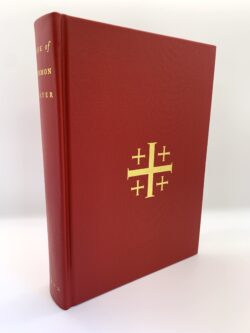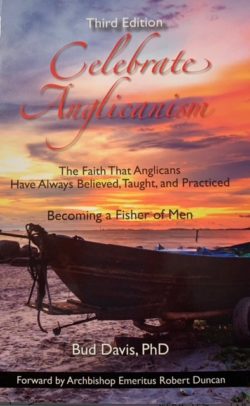Description
Anglicans comprise the world’s largest Protestant group, yet the anchor of their faith—The Thirty-nine Articles of Religion—though revered, are not well known or understood. This highly searchable K digital download edition of Bishop John Rodgers’ 735-page commentary explains biblical foundations and practical applications in a fresh way that is saturated with love for the Gospel. It will be especially valuable in the Global South where Anglican growth is explosive and electronic devices are reasonably accessible. After a lifetime of teaching theology rooted in these articles, John Rodgers has no peer with such a winsome blend of rigorous theology and biblical scholarship. His flair will delight pastors, theologians and laity worldwide.
Dr. Rodgers was a distinguished Professor at Virginia Theological Seminary and later the Dean/President of Trinity School for Ministry. His summa cum laude doctorate is from the University of Basel, Switzerland, where he studied under Karl Barth.
This is no dry academic tome but a presentation of personal spirituality from someone with a heart for mission. Readers will find themselves feasting at a banquet of food for the soul. The menu is Reformation theology and biblical orthodoxy, served up with contemporary concerns and a conversational style. The Table of Contents begins with a Foreword by J.I. Packer and an Introduction by the author about his approach and method. In discussing each Article, Rodgers outlines its major teaching points with an Explanation. Then he points out its Biblical Foundations and discusses False Teachings Denied and Objections Answered. Finally, in Implications, he considers some ways we might apply the teachings of the particular Article to congregational life and mission, and to our lives and ministries. A brief Conclusion brings the discussion of each Article to an end.
The author divides the Articles into five sections:
- THE APOSTOLIC FAITH—THE DOCTRINE OF THE HOLY TRINITY. This section is worth its weight in gold as it addresses all the major issues with respect to understanding the nature of God, Christ and the Holy Spirit. In addition there is a short Appendix A on the arguments for the existence of God, which is a masterly summary of what could be a complex subject.
- THE RULE OF FAITH—THE DOCTRINE OF SCRIPTURE AND THE CREEDS. Rodgers’ approach is thoroughly biblical, affirming the authority and inspiration of the Scriptures as the norm for Anglican doctrine. There is a wonderful review of the story of salvation in the Bible, and of the history of the Canon of Scripture—how the books we have got included and why some were left out.
- SALVATION—THE DOCTRINE OF ORIGINAL SIN, FREE WILL, JUSTIFICATION, PREDESTINATION AND ELECTION, AND SALVATION ONLY BY CHRIST. Here complex and controversial subjects are presented clearly in the moderate Calvinist and Lutheran traditions followed by the English Reformers. The author puts his finger on the weakness of much liberal and progressive theology that has departed from the biblical truths about sinful humanity and salvation through Christ alone.
- THE CHURCH, MINISTRY AND SACRAMENTS—THE DOCTRINE OF THE CHURCH, HER AUTHORITY ALWAYS SUBJECT TO HOLY SCRIPTURE, THE SACRAMENTS AND ORDAINED MINISTRY AND HOW THEY DIFFER FROM THE ROMAN CATHOLIC UNDERSTANDING. (While the Roman Catholic Church has changed greatly for the better since the Sixteenth Century she still has a view of these subjects that is at variance from biblical teaching. Rodgers makes a good case why it is difficult for those of us who hold to the Scriptures to rejoin Rome despite the disarray and apostasy in many Protestant denominations.)
- CIVIC RIGHTS AND DUTIES—THE RELATIONSHIP OF CHURCH AND STATE, STEWARDSHIP, ECONOMICS, PACIFISM AND SERVING IN THE MILITARY. This section covers many of the issues we face in our time.
In Appendix B the author addresses the authority and interpretation of Holy Scripture giving some clear guidelines on how to apply Scripture to controversial issues. Appendix C presents the three contemporary Anglican views on the ordained ministry: the Catholic, Evangelical and the Charismatic traditions including a helpful comment on the issue of women’s ordination.
Finally, there is a General Index and a Scripture Index.




